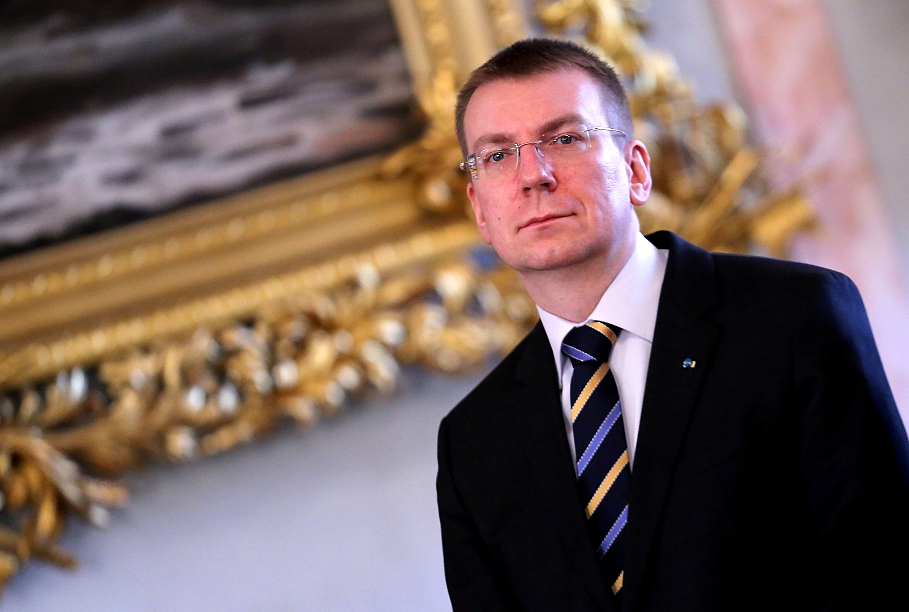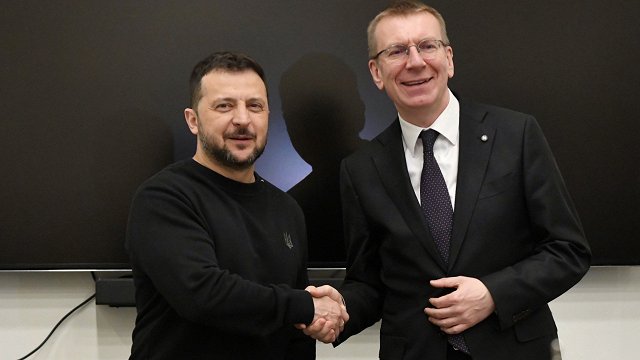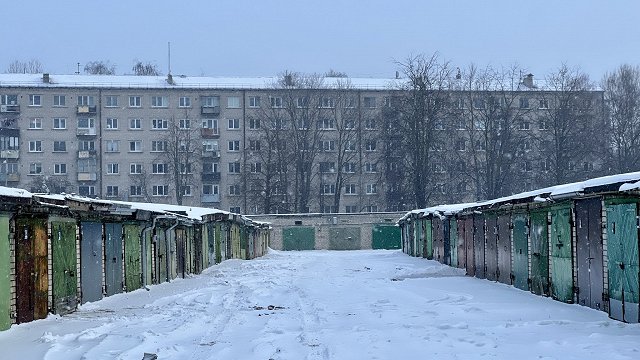LSM: Latvia has adopted a tough and consistent tone regarding Russia's actions in Ukraine. Will you be trying to maintain that through the presidency or is there an onus on you to be more conciliatory?
One thing we are not going to do is be an "anti-Russian" or a "pro-Russian" Presidency. It's going to be a Presidency that takes into account the views of all member states.
Our priorities are the Eastern Partnership, Central Asia, I think a lot of work will also be done on negotiations concerning the Transatlantic Trade and Investment Partnership (TTIP).
Our principled position - which is not going to change - is the non-recognition of Crimea. The situation in Eastern Ukraine is still very tense and we will do what we can to help diplomatic efforts and political dialogue to prevail.
If we see things improving in Eastern Ukraine, if Russia becomes part of the solution rather than part of the problem, we can soften or even lift some sanctions. If things get worse, inevitably we have to use this instrument. A lot depends on political dialogue. Unfortunately we see the political rhetoric in the last days by the Russian leadersihp is not something I would call encouraging.
I would be very happy to see more European diplomacy involved overall in issues concerning Ukraine.
LSM: It's interesting that at the moment more attention is being paid to Belarus with the Minsk negotiations. It's also an Eastern Partnership country - how do you see the EU's relationship with Belarus developing in the next six months?
The overall EU approach has to be that we have flexibility and differentiation when we work with our Eastern Partners, including Belarus. Political values, human rights and free speech are essential elements, so we'll continue to work on those issues in the presidency and beyond.
Having said that, yes, we can have more intense dialogue between Belarus and the EU but it's very much up to Belarus how much the country wants to engage.
I do believe we can have a new chapter in EU-Belarus relations. I do believe we can work on issues of mutual interest. One of those things is a visa liberalization program. We have engaged in the first discussions. Belarus wants to become a World Trade Organization member - the EU can also be of help there, but I wouldn't say we have to have one size fits all where the Riga Summit and Eastern Partnership are concerned. We have to be very flexible but also very principled in some issues.
LSM: But because it happens to be Latvia - Belarus' neighbor - holding the Presidency, maybe this is a golden opportunity for Belarus?
The ultimate decision rests with the Eastern Partnership countries. I do believe we shouldn't be pushing or giving any ultimatums.
Yes, we can promote EU-Belarus relations and we understand the situation with Belarus. Of course the fact that we are neighbors plays quite well but it's not the defining element.
LSM: How could we judge the success of Latvia's Presidency? How far can we actually get in six months? What would be a realistic benchmark?
We cannot right now speak about benchmarks. That would be very dangerous. Association Agreements have been signed quite recently with Georgia and Moldova and have been ratified by the European Parliament. We've made great progress already.
But what we're looking for now are the first results of implementation, particularly in the Deep and Comprehensive Trade Agreement part of the Association Agreements. We have to see what are the real challenges for those countries and what could be EU assistance in very practical terms, because it's ultimately the Commission that gives the assessment from the EU side and I have already had discussions with Commissioner Hahn on this.
My benchmark of success for Riga would be that there is a strong political signal the Eastern Partnership is relevant and will continue.
Second, that we declare that Association Agreements are not the end of relations with Eastern Partners and the EU, that we review the overall neighborhood policy to have some key elements included in the Riga summit declaration including a strong signal on visa liberalization.
That would send a good signal to the public in Eastern Partnership countries.
I can't say exactly what will happen in May, but maybe we can review elements such as energy, common security, defense policy, security sector reform in those countries that really want to do so.

































